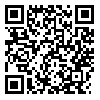Volume 19, Issue 60 (4-2025)
MLJ 2025, 19(60): 345-359 |
Back to browse issues page
Download citation:
BibTeX | RIS | EndNote | Medlars | ProCite | Reference Manager | RefWorks
Send citation to:



BibTeX | RIS | EndNote | Medlars | ProCite | Reference Manager | RefWorks
Send citation to:
Basiri A. Analyzing the Legal Aspects of Using Intelligent Robotic Systems in the Field of Medicine and Health. MLJ 2025; 19 (60) :345-359
URL: http://ijmedicallaw.ir/article-1-1827-en.html
URL: http://ijmedicallaw.ir/article-1-1827-en.html
Analyzing the Legal Aspects of Using Intelligent Robotic Systems in the Field of Medicine and Health
Department of Law, Faculty of Law and Social Sciences, Payame Noor University, Tehran, Iran.
Abstract:
Background and Aim: By combining the knowledge of robotics with medical sciences and taking the help of communication technology, significant progress has been made in the field of robotics in health and treatment, but the use of robots in health and medical affairs has had legal challenges. The purpose of this research is to examine the legal issues and challenges of medical robots that arise when they are used.
Method: Descriptive analytical research method and library information collection method.
Ethical Considerations: In all stages of the research, the ethical aspects of library study, including the authenticity of the text, honesty and scientific trustworthiness, have been observed.
Results: According to international human rights documents and other international regulations, the use of intelligent robots in some medical fields can challenge human rights and human responsibility.
Conclusion: Technological advances in the fields of robotics and artificial intelligence have provided opportunities to face health issues, but have created many challenges and legal concerns, including in the field of human rights and responsibility allocation. In this research, an attempt has been made to examine the harms and disadvantages of using intelligent medical robots in relation to some human rights contained in international and regional human rights documents and finally, the effects and consequences that intelligent medical robotic systems bring in the society, including taking job opportunities and creating unemployment for job seekers and working people and endangering the responsibility system, human dignity, safety and health and privacy of users which are supported in international and regional human rights documents, has been explained.
Please cite this article as:
Basiri A. Analyzing the Legal Aspects of Using Intelligent Robotic Systems in the Field of Medicine and Health. Medical Law Journal. 2025; 19: e23.
Method: Descriptive analytical research method and library information collection method.
Ethical Considerations: In all stages of the research, the ethical aspects of library study, including the authenticity of the text, honesty and scientific trustworthiness, have been observed.
Results: According to international human rights documents and other international regulations, the use of intelligent robots in some medical fields can challenge human rights and human responsibility.
Conclusion: Technological advances in the fields of robotics and artificial intelligence have provided opportunities to face health issues, but have created many challenges and legal concerns, including in the field of human rights and responsibility allocation. In this research, an attempt has been made to examine the harms and disadvantages of using intelligent medical robots in relation to some human rights contained in international and regional human rights documents and finally, the effects and consequences that intelligent medical robotic systems bring in the society, including taking job opportunities and creating unemployment for job seekers and working people and endangering the responsibility system, human dignity, safety and health and privacy of users which are supported in international and regional human rights documents, has been explained.
Please cite this article as:
Basiri A. Analyzing the Legal Aspects of Using Intelligent Robotic Systems in the Field of Medicine and Health. Medical Law Journal. 2025; 19: e23.
Type of Study: Original Article |
Received: 2024/04/28 | Accepted: 2024/09/9
Received: 2024/04/28 | Accepted: 2024/09/9
Send email to the article author
| Rights and permissions | |
 |
This work is licensed under a Creative Commons Attribution-NonCommercial 4.0 International License. |






